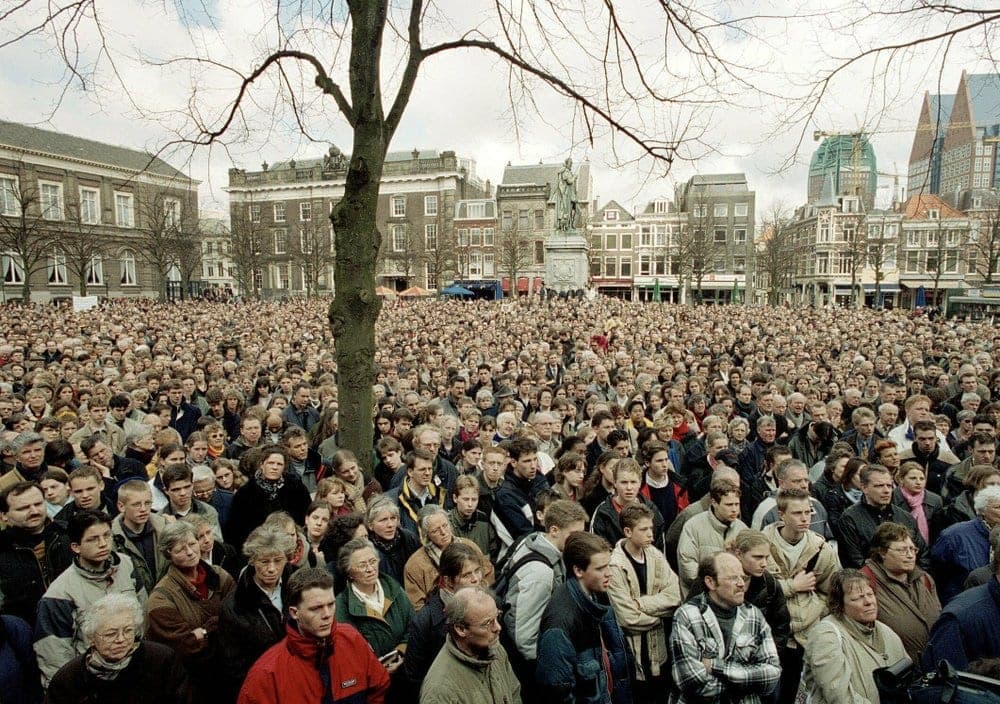Dutch Cardinal Wim Eijk gave an official reaction to the verdict in a landmark euthanasia case, in which a doctor who performed euthanasia on a woman suffering from severe dementia has been acquitted of murder. Last week prosecutors announced their decision to take the case to the Dutch Supreme Court.
Within the Dutch bishops’ conference, the cardinal is the point man for medical ethics questions.
With some caution, Eijk told Katholiek Nieuwsblad the rise in legal proceedings and the fall in cases of euthanasia and assisted suicide are good news. But he also expressed his sympathy for the doctor on trial.
The cardinal outlined the bigger picture of the developments surrounding euthanasia in the Netherlands.
“Since 1990, the year when the first research into the subject was done, there has been a substantial rise in the number of cases of euthanasia and assisted suicide. The number of reported cases of euthanasia with a regional commission have gone down however, from a total of 6,585 cases in 2017 to 6,126 cases in 2018. That’s a decrease of around 7 percent,” he said.
The cardinal suspects doctors have become increasingly unsure of what to do and are therefore reluctant to agree to perform euthanasia on a patient. He also sees the downside of this development.
“Because a patient’s own doctor refuses to perform euthanasia, a significantly growing number of people decide to turn to the End of Life Clinic in The Hague to have euthanasia performed on them by one of the clinic’s own doctors,” he said.
Still, the numbers show a decrease and the cardinal said he thinks this is the most important news in this case.
“What should someone, who thinks human life has its own intrinsic value and should therefore never be ended, make of all this? Someone like that would rather see euthanasia and assisted suicide never occurring again,” Eijk said.
“Still, a decrease of 7 percent of the number of euthanasia cases is not without its meaning. It’s a relative contribution to the common good, which according to the Catholic Church, is a basic principle of social teaching,” he continued.
According to the cardinal, the “common good” covers “the conditions as a whole that enable all members of society to reach their goals as human beings.”
“One of these conditions is that the intrinsic value of the human life is respected and that this is imposed by the law. Another one of these conditions, inextricably bound up with the common good, is that these laws get observed. Under certain conditions, this is also true for the euthanasia law, which is deemed unjust based on the belief that human life has its intrinsic value. The restrictions and the due diligence requirements laid down by the euthanasia law, mean that it makes a relative contribution to the protection of human life,” Eijk said.
The cardinal also expresses his sympathy with the doctor who was put on trial after having performed euthanasia on a patient suffering from severe dementia.
“Although prosecutors were not seeking punishment for the doctor, we need to keep in mind that legal proceedings lead to a lot of uncertainty and stress for any doctor and as such they are a serious burden in itself,” he said.
The heavy burden carried by medical professionals due to the ambiguity in the Dutch euthanasia law, hasn’t been lifted by the verdict in this case. The cardinal, a doctor himself, seems to understand the difficult position of Dutch doctors. He’s happy to see that doctors are more reluctant to agree to perform euthanasia on a patient.
“An annual decrease of 7 percent of euthanasia cases is not much, but it still is a contribution – be it a small one – to the common good. Will this number continue to decrease? Or will doctors be encouraged by the court’s ruling in this case? We’ll have to see what the annual reports of the regional commissions tell us.”
This article was translated for Crux by Susanne Kurstjens-van den Berk.















